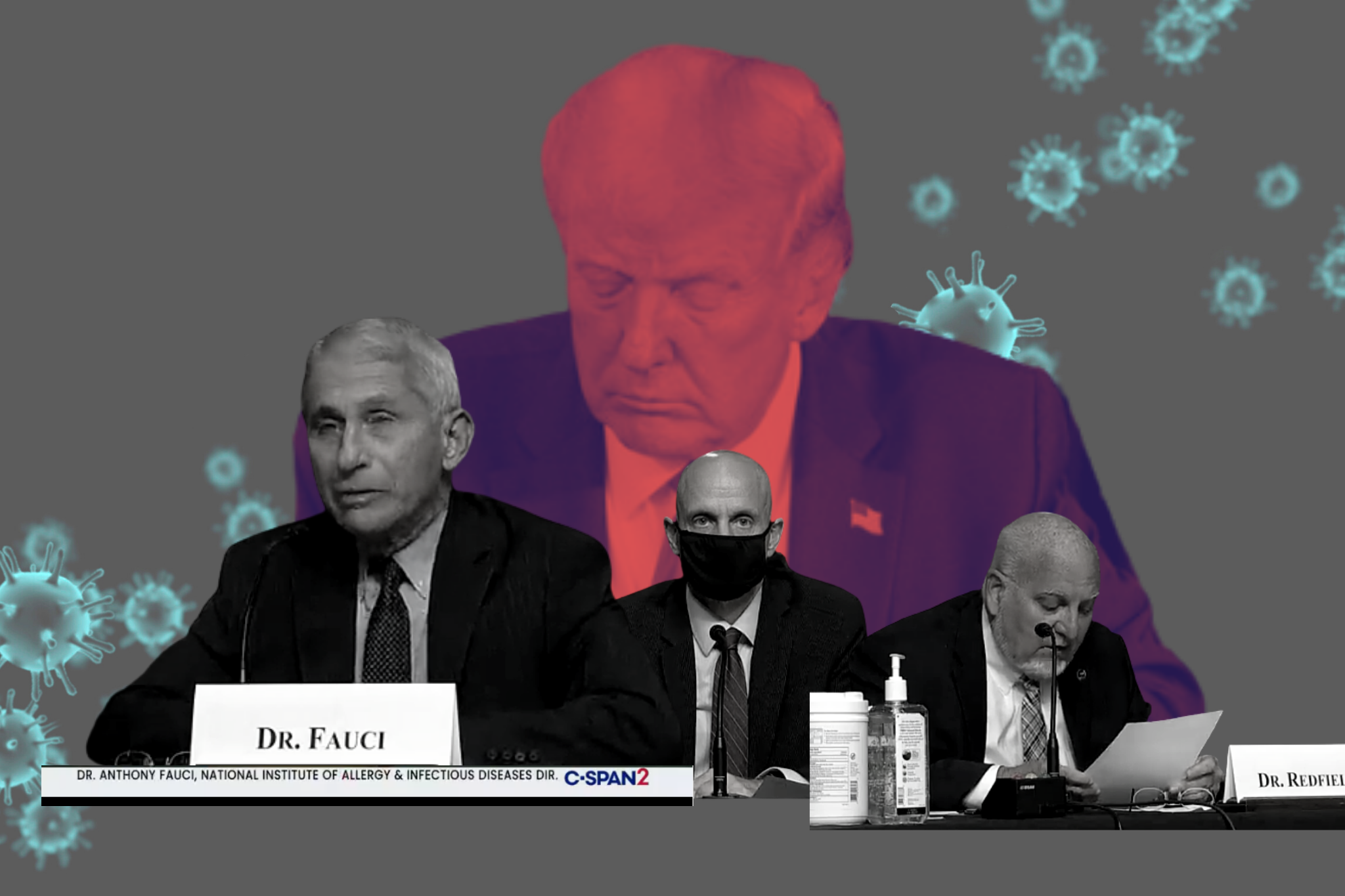Emails Provide a Glimpse of Trump Administration Officials’ Heavy-Handed Involvement in HHS Communications
New documents obtained by American Oversight reveal more information about the extent to which White House officials and Trump administration political appointees interfered with press materials and communications at scientific agencies.

New documents obtained by American Oversight reveal more information about the extent to which White House officials and Trump administration political appointees interfered with press materials and communications at scientific agencies.
The documents, released by the Food and Drug Administration and the Department of Health and Human Services in response to American Oversight’s Freedom of Information Act requests, show officials including Michael Caputo and Katie Miller organizing press, promoting partisan talking points, and altering review processes. As news reports continue to emerge about the White House’s attempts to attack or muzzle career scientists like Dr. Anthony Fauci, the records add to the troubling picture of Trump administration officials inserting themselves into what should be non-political public health communications.
In late February, the White House placed Vice President Mike Pence’s office in charge of all coronavirus-related messaging. In a government-wide email, Mick Mulvaney, then the acting White House chief of staff, said that all coronavirus-related communications had to go through Katie Miller, Pence’s communications director.
In April, Miller sent FDA Commissioner Stephen Hahn an event description for a live interview with the Washington Post that he was doing the next day. In May, Miller also sent Hahn an email with the contact information of a reporter at Politico. Just last month, a few weeks after Hahn had found himself in hot water for parroting Trump’s inaccurate claims about convalescent plasma treatment the White House blocked him from testifying in front of the House Energy and Commerce Committee.
On May 11, Ryan Murphy, the principal deputy assistant secretary for public affairs at HHS, circulated a list of contacts from the White House and Pence’s office who “should receive clearance emails” to approve (or block) potential print and broadcast interviews of public affairs officials at agencies including HHS, the FDA, and the Centers for Disease Control and Prevention. The list contained ten names, including Miller.
Later that month, Michael Caputo changed the clearance process. Caputo, a former Trump campaign official who had been installed as HHS assistant secretary of public affairs in April, was recently at the center of a number of controversies, including reports that his team interfered with the language of key CDC scientific reports about the pandemic and attempted to delay their release. He also designed a controversial celebrity-studded $300 million ad campaign to run before the election, which members of Congress said was a political stunt. Caputo is currently on a leave of absence from the agency for health reasons.
On May 22, Caputo wrote that he was “reinstating long established best practices” in an email telling HHS staff that press materials now had to be submitted solely to his office for clearance.
Caputo did note that his office would still pass on materials to the White House on an “as needed” basis. Rather than multiple White House officials, Caputo only mentioned three other HHS officials, each of whom had been appointed during the pandemic: Paul Alexander, Brad Traverse, and Gordon Hensley.
Alexander, a senior adviser who joined HHS in March, was dismissed last month following reports that he had admonished CDC officials for warning that the coronavirus could spread through reopened schools and accused them of trying to “hurt the President.” Following his departure, the New York Times reported on emails Alexander sent to Caputo in which he lambasted CDC officials for promoting mask-wearing and accused them of lying and being “duplicitous,” which Caputo then sent to CDC Director Robert Redfield.
Traverse, a senior adviser who joined the administration in April, was reported to be Caputo’s deputy and formerly worked as a lobbyist at BlueCross BlueShield. Hensley, a senior adviser, joined in May and was a partner at Health Media Management Group. Both are still currently at HHS.
The documents also include an email from March in which White House press official Austin Mitchell sent a news summary titled “What You Need to Know: President Trump’s Coronavirus Efforts.” The list of positively slanted highlights was forwarded to several FDA officials, including Brad Kimberly, the agency’s social media director, and Abigail Capobianco, a press officer.
Last Friday, the Knight Institute highlighted the Murphy and Caputo emails that appear in these documents in its lawsuit against the CDC. The CDC had released to the Knight Institute heavily redacted copies of those emails, saying that the content was subject to the “deliberative process” privilege used to withhold certain non-finalized information. But as the Knight Institute argued, the unredacted emails obtained by American Oversight show that the “interim process” outlined by HHS officials in the emails was shared with lower-level staff for the “purpose of implementation,” and thus that privilege should not apply.
You can read more about American Oversight’s investigation into the White House’s control of pandemic-related communications here.